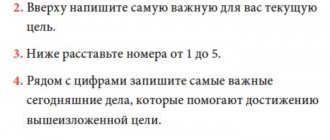From time immemorial, there has been a division of people into men and women in the world. It is not surprising that the consolidation of certain norms and standards in human behavior was based on this. A man is a strong and brave warrior, breadwinner and guardian. A woman is a keeper of the hearth, a caring mother and an affectionate wife. It is not for nothing that even in the modern world many men and women compare each other to aliens - they seem so different and sometimes alien in the process of communication.
But time passed, and as technology developed, the amount of time spent on meeting the basic needs of the floors noticeably decreased. As a result, step by step, humanity has come to the current picture of the world, where gender differences are no longer based only on gender and where, instead of two genders, more than 60 new types have been formed in just a few years.
What are gender stereotypes, how have they changed with the development of society and how do they influence our daily lives, said psychologist-sexologist Irina Alexandrova .
From the personal archive of Irina Alexandrova /
What is gender and male and female gender stereotypes?
Before developing the topic of gender stereotypes, let us briefly define the concept of “gender” itself. This term, which goes back to the English gender and the Latin genus, which means “genus,” understands a number of characteristics that are related to masculinity and femininity. At the same time, gender identity is not related to a person’s sexual orientation: the concept of gender refers to mental, social and cultural differences, and gender is determined only by physical differences (human anatomy and physiology).
Femininity, or femininity, is a pattern of behavior and the focus of mental qualities that make up the female gender - such as tenderness, compassion, sensitivity, and so on. The opposite of femininity is masculinity (masculinity) - a male gender stereotype, which is characterized by such traits as independence, rationality, courage, assertiveness, emotional control and others. The concept of femininity, as well as masculinity, is shaped by the cultural, ethnic, age and social environment.
All men need only one!4
The role of sex in relationships cannot be underestimated, but in modern society it is greatly overestimated. And there is a simple and understandable explanation for this, and this is marketing again! Advertising mechanisms exploit simple physiological needs, which is why girls in swimsuits advertise cars, men's deodorants, cigarettes, alcohol and many other things that have nothing to do with sexual instincts.
True, this trend is gradually starting to go away, because many people have long suspected that there is a deception hidden somewhere here. And most importantly, women also want sex and enjoy it! Does this mean that they also only need one?
How influenced is everyday life by gender stereotypes?
Of course, the main gender stereotypes living in the public consciousness significantly influence our lives. Moreover, we are often guided by them even in relation to ourselves. For example, society defines a woman as the “weaker sex” - a gentle, vulnerable and weak, and sometimes also narrow-minded, weak-willed and spineless creature.
If at decisive moments in life someone tries to remind you that “you are a woman,” we can safely say that we are talking specifically about gender stereotypes of men and women. And sometimes we ourselves are happy to give up struggle, competition, difficult and responsible, but interesting work, keeping promises and much more, “covering” ourselves with just such stereotypes.
Worker rights advocates around the world actively oppose job advertisements written according to the "male/female only" principle, as it is discriminatory. However, there is no clear ban on such publications in the legislation. The same can be said about the possibility of promotion: many believe that only a man is worthy of career advancement, since he is the one who can look more respectable, competent, and so on in the eyes of partners and competitors. These and other similar misconceptions are also a consequence of gender stereotypes among company management.
Levada Center
The survey was conducted on March 7–12, 2021, using a representative all-Russian sample of urban and rural population of 1,600 people aged 18 years and older in 136 settlements, 52 constituent entities of the Russian Federation. The study is conducted at the respondent's home using personal interviews. The distribution of responses is given as a percentage of the total number of respondents along with data from previous surveys. The statistical error in a sample of 1600 people (with a probability of 0.95) does not exceed: 3.4% for indicators close to 50%; 2.9% for rates close to 25%/75%; 2.0% for indicators close to 10% / 90%; 1.5% for indicators close to 5% / 95%.
Levada Center has been asking about the qualities of men and women most valued by Russians since 1993. On the one hand, it should be considered as an indicator of the desired (stereotypical) distribution of gender roles in society, i.e. what “real women” and “real men” should be like. On the other hand, to identify possible inconsistencies between the imposed and desired image, i.e. Do Russian women, for example, really want to be the way Russian men see them? It is immediately worth noting that for a full-fledged study of gender images, models and stereotypes functioning in Russian public opinion, a separate study is required, however, even such indicator questions allow us to trace the dynamics in the gender hierarchy of images (or lack thereof) and analyze the value preferences of Russians.
a. Dynamics of public opinion
The results of the survey for March 2021 demonstrate that there are no significant changes in the “gender portraits” of Russians (Table 1 and Table 2). In general, among the most valuable qualities among men, “intelligence,” “the ability to earn money,” and “decency” are still in the lead, while among women, “thriftiness” and “good appearance.” At the same time, the dynamics of public opinion indicate a slight decrease in the popularity of moral qualities (“decency” and “loyalty”), which probably corresponds with a general decrease in concern about the problem of morality in society. If, for example, in 1997, a quarter of the adult population noted among the problems that worry them, “a crisis of morality, culture, ethics,” but now their share is about 15-16%.
Table 1
WHAT DO YOU VALUE MOST IN MEN? (for the entire sample; respondents were offered a card; several answer options; ranked in descending order by March 2021)
| Jan.93 | Jan.00 | Feb.08 | Feb.12 | Jan.15 | Mar.18 | |
| Mind | 65 | 58 | 65 | 63 | 59 | 51 |
| Ability to earn money | — | — | — | — | 50 | 42 |
| Decency | 57 | 53 | 54 | 51 | 35 | 37 |
| Loyalty | 30 | 27 | 29 | 27 | 26 | 23 |
| Thrift | 33 | 34 | 29 | 29 | 17 | 20 |
| Striving for success | — | — | — | — | 21 | 18 |
| Caring | 22 | 24 | 29 | 29 | 18 | 18 |
| The ability to resist adversity | 21 | 23 | 26 | 29 | 24 | 17 |
| Organization | — | — | — | — | 17 | 13 |
| Independence | 14 | 19 | 17 | 20 | 10 | 11 |
| Temperament | 3 | 5 | 7 | 7 | 4 | 6 |
| Good looks | 14 | 8 | 7 | 6 | 7 | 5 |
| Easy character | 6 | 5 | 6 | 6 | 6 | 5 |
| The ability to empathize | 9 | 9 | 7 | 6 | 5 | 3 |
| Sex appeal | — | 3 | 3 | 2 | 2 | 1 |
| Other | — | — | — | 2 | 1 | 1 |
| I find it difficult to answer | 5 | 4 | 4 | 2 | 2 | 3 |
table 2
WHAT DO YOU VALUE MOST IN WOMEN? (for the entire sample; respondents were offered a card; several answer options; ranked in descending order by March 2021)
| Jan.93 | Jan.00 | Feb.08 | Feb.12 | Jan.15 | Mar.18 | |
| Thrift | 39 | 44 | 51 | 45 | 49 | 46 |
| Caring | 24 | 31 | 37 | 33 | 39 | 32 |
| Good looks | 53 | 40 | 39 | 40 | 41 | 31 |
| Loyalty | 41 | 33 | 34 | 33 | 33 | 30 |
| Mind | 32 | 29 | 33 | 28 | 32 | 25 |
| Decency | 37 | 30 | 34 | 31 | 29 | 25 |
| Easy character | 13 | 12 | 15 | 20 | 15 | 19 |
| The ability to empathize | 17 | 16 | 12 | 19 | 15 | 14 |
| Sex appeal | — | 10 | 11 | 11 | 12 | 10 |
| The ability to resist adversity | 13 | 14 | 11 | 14 | 10 | 10 |
| Organization | — | — | — | — | 9 | 8 |
| Temperament | 3 | 6 | 6 | 8 | 7 | 7 |
| Striving for success | — | — | — | — | 4 | 5 |
| Independence | 6 | 8 | 6 | 5 | 3 | 5 |
| Ability to earn money | — | — | — | — | 7 | 4 |
| Other | — | — | — | 1 | <1 | 1 |
| I find it difficult to answer | 5 | 3 | 3 | 2 | 2 | 2 |
b. Gender specificity
If we look at the differences in the opinions of men and women regarding the most valuable qualities, we can see that the “gender matrices” are radically different, i.e. In public opinion, masculine and feminine qualities are strictly defined (see Diagram 1 and Diagram 2, respectively).
Diagram 1. Image of a man
Diagram 2. Image of a woman
Despite the fact that the claims of men and women regarding representatives of their own sex generally coincide with the ideas of the opposite sex, differences are also recorded. For example, men more often than women value “the desire to succeed” (21% versus 15%), “independence” (16% versus 6%) and “organization” (16% versus 12%). Women, unlike men, would more often like to see representatives of the stronger sex as “faithful” (32% versus 13%), “caring” (25% versus 10%), “economic” (22% versus 16%) and “decent” (39% vs. 35%).
In themselves, women more often than men value “intelligence” (29% versus 21%), “the ability to resist adversity” (12% versus 7%) and “organization” (10% versus 5%). Men more often note “physical” qualities in women: “good appearance” (36% versus 28%), “sex appeal” (14% versus 7%), “temperament” (10% versus 5%). At the same time, they, like women, pay more attention to the opposite sex in terms of “fidelity” (35% versus 25%).
c. Age
Obviously, the opinions of young men and older men may differ, as well as the opinions of women of different ages. For convenience, they were divided into three age subgroups (six in total): 18–30 years, 31–45 years and 46 years and older.
Based on this division, it is clear that with age, regardless of gender, qualities such as “decency” and “thrift” are more valued in men and women (Table 3 and Table 4). In men, young boys and girls more often than their older compatriots value the “striving for success” and “the ability to earn money” (probably this partly determines the marriage strategies of both and influences the postponement of marriage due to financial insolvency).
With age, men more often begin to value “intelligence” and “thrift”, and young men more often pay attention to the “good appearance” of their potential companions. Young Russian women aged 18 to 30 more often note that a woman should have “good appearance” and “an easy-going character.” It is noteworthy that even the post-Soviet generation of Russian women for the most part does not strive for financial independence, independence and success, limiting women’s role models to the family, which requires “thrift” and “caring” on her part.
Table 3. WHAT DO YOU VALUE MOST IN MEN? (qualities are ranked alphabetically)
| Men | Women | |||||
| 18-30 | 31-45 | 46+ | 18-30 | 31-45 | 46+ | |
| Loyalty | 15 | 11 | 13 | 34 | 28 | 33 |
| Caring | 7 | 11 | 11 | 26 | 24 | 25 |
| Easy character | 2 | 2 | 3 | 8 | 5 | 6 |
| Independence | 17 | 17 | 15 | 11 | 4 | 6 |
| Organization | 14 | 18 | 15 | 14 | 11 | 11 |
| Decency | 32 | 31 | 38 | 35 | 38 | 42 |
| Sex appeal | 2 | <1 | 1 | 2 | 1 | 1 |
| The ability to empathize | 1 | 3 | 2 | 2 | 3 | 6 |
| Striving for success | 27 | 23 | 16 | 20 | 23 | 9 |
| Temperament | 10 | 6 | 3 | 11 | 6 | 3 |
| Mind | 52 | 54 | 52 | 49 | 51 | 49 |
| Ability to earn money | 46 | 34 | 44 | 47 | 49 | 38 |
| The ability to resist adversity | 19 | 17 | 18 | 12 | 14 | 18 |
| Thrift | 12 | 15 | 20 | 17 | 23 | 24 |
| Good looks | 5 | 5 | 2 | 11 | 6 | 6 |
Table 4. WHAT DO YOU VALUE MOST IN WOMEN? (qualities are ranked alphabetically)
| Men | Women | |||||
| 18-30 | 31-45 | 46+ | 18-30 | 31-45 | 46+ | |
| Loyalty | 35 | 34 | 35 | 24 | 22 | 27 |
| Caring | 33 | 34 | 34 | 29 | 31 | 32 |
| Easy character | 21 | 15 | 21 | 25 | 18 | 17 |
| Independence | 1 | 3 | 2 | 10 | 6 | 6 |
| Organization | 4 | 3 | 7 | 7 | 13 | 10 |
| Decency | 20 | 25 | 26 | 22 | 24 | 28 |
| Sex appeal | 19 | 16 | 10 | 11 | 8 | 4 |
| The ability to empathize | 13 | 11 | 13 | 13 | 14 | 18 |
| Striving for success | 2 | 3 | 4 | 11 | 8 | 4 |
| Temperament | 15 | 10 | 6 | 9 | 4 | 3 |
| Mind | 17 | 19 | 24 | 30 | 28 | 30 |
| Ability to earn money | 5 | 3 | 3 | 4 | 5 | 5 |
| The ability to resist adversity | 5 | 6 | 9 | 9 | 12 | 12 |
| Thrift | 39 | 50 | 50 | 37 | 43 | 50 |
| Good looks | 39 | 38 | 33 | 43 | 29 | 21 |
d. Marital status
The image of a “real” woman or a “real” man can be differentiated depending on the marital status of the respondents, so the questionnaire included a question about marital status. Based on the different composition of the groups, men and women were divided into two subgroups, with the exception of widowed and divorced people (Table 5):
- “Married”/“Unmarried”, including those respondents who are separated but not divorced.
- “Married” / “Single”, including those respondents who are in a relationship but not registered.
Table 5. Gender images depending on marital status (qualities are ranked alphabetically)
| Men 18+ about the valuable qualities of women | Women 18+ about the valuable qualities of men | |||
| "Married" | "Unmarried" | "Married" | "Unmarried" | |
| Loyalty | 32 | 37 | 30 | 39 |
| Caring | 34 | 29 | 25 | 26 |
| Easy character | 19 | 19 | 7 | 9 |
| Independence | 2 | 1 | 6 | 11 |
| Organization | 5 | 3 | 12 | 12 |
| Decency | 25 | 23 | 37 | 36 |
| Sex appeal | 13 | 16 | 1 | 1 |
| The ability to empathize | 14 | 9 | 4 | 1 |
| Striving for success | 2 | 3 | 17 | 20 |
| Temperament | 7 | 16 | 6 | 6 |
| Mind | 21 | 23 | 49 | 47 |
| Ability to earn money | 4 | 4 | 42 | 49 |
| The ability to resist adversity | 8 | 7 | 17 | 9 |
| Thrift | 50 | 39 | 24 | 17 |
| Good looks | 38 | 34 | 7 | 11 |
The opinion of family people fully reproduces the idea of the “traditional” division of roles in a heterogamous family, in which the woman is responsible for running the home and household, and the man provides for the family financially. Thus, every second married Russian man most values \u200b\u200bthe quality in a woman as “thrift” (among bachelors this figure is 39%). In turn, 42% of Russian married women believe that a man should “be able to earn money.”
However, in this case, women’s marital status does not significantly influence the hierarchy of the most valuable male qualities (“intelligence” and “ability to earn money”), unlike men, among whom marital status significantly differentiates the desired image of a woman. For bachelors, it is equivalent for a woman to be both “economically efficient” and “outwardly attractive” (39% versus 34%, respectively). Married men are more rational - among them, the idea that a companion should be “economic” is significantly more important than her cuteness (50% versus 38%, respectively). Bachelors more often look for “temperament” in women, while married men want to see “the ability to empathize” and “caring” in their spouse, which indicates the short-termism of the former’s strategies and the “comfortable long-termism” of the latter.
Married women more often believe that their man should “be able to resist adversity” (17% versus 9%, respectively), while single girls more often value “loyalty” and “independence” in the opposite sex.
One of the least popular qualities among both sexes was “sex appeal”, with only 1% of women from both subgroups mentioning it, and among men about 13-16% of respondents. Which, in our opinion, once again indicates that the topic of sex is taboo in society, declaratively removed from the value structure.
e. Education
The survey sample represented the population by level of education, so we can turn to consider it in the context of gender preferences. As for women, their own higher education makes them more demanding of the opposite sex, in contrast to men with higher education, for whom an intelligent woman is generally less preferable than a thrifty and faithful one.
Table 6. Gender images depending on educational level (qualities are ranked alphabetically)
| Women (level of education) | Men (level of education) | |||||
| Higher | Prof. | Average and below | Higher | Prof. | Average and below | |
| Loyalty | 39 | 26 | 32 | 38 | 37 | 30 |
| Caring | 25 | 26 | 24 | 29 | 33 | 38 |
| Easy character | 5 | 6 | 7 | 24 | 16 | 18 |
| Independence | 8 | 6 | 5 | 2 | 2 | 1 |
| Organization | 12 | 13 | 10 | 6 | 3 | 6 |
| Decency | 41 | 38 | 39 | 25 | 24 | 25 |
| Sex appeal | 0 | 0 | 2 | 18 | 13 | 12 |
| The ability to empathize | 4 | 4 | 4 | 13 | 14 | 11 |
| Striving for success | 22 | 14 | 9 | 2 | 4 | 3 |
| Temperament | 6 | 6 | 5 | 12 | 7 | 11 |
| Mind | 57 | 47 | 45 | 24 | 19 | 21 |
| Ability to earn money | 47 | 43 | 38 | 3 | 4 | 4 |
| The ability to resist adversity | 15 | 14 | 17 | 8 | 7 | 7 |
| Thrift | 17 | 25 | 25 | 43 | 50 | 47 |
| Good looks | 6 | 7 | 8 | 36 | 35 | 38 |
Women with higher education more often value a commercial spirit in men - “the ability to earn money” and “strive for success.” Women with professional education and below more often pay attention to the “housekeeping” of men (considering that a significant part of them live in small towns and villages, and, accordingly, in the private sector, where “hands-on” is required - home repairs, garden care etc.). It is noteworthy that for men with less than a secondary education, a woman’s “good appearance” is just as important as her “caringness.”
At the same time, men and women with higher education are somewhat more likely to point to “fidelity” as a valuable quality in the opposite sex, indicating greater pressure from collective ideas about obligatory monogamy in relationships with a partner.
Karina PIPIA, sociologist at Levada Center
For data that every fifth adult Russian woman has personally experienced sexual harassment at work or observed it against her colleagues, see here.
ANO “Levada-Center” is included in the register of non-profit organizations performing the functions of a foreign agent.
For a statement by the director of the Levada Center who disagrees with this decision, see here. In contact with
How have gender stereotypes changed with the development of society?
However, even if you look from the point of view of the binary gender system, then as society develops, you can notice quite strong and dramatic changes in centuries-old gender stereotypes.
“For example, the role of a woman has been transformed from a man’s companion and assistant, the mother of his children, into an independent person who has the right to vote, learn any profession, hold any position, and so on,” said Irina Alexandrova. “The man has also moved away from the role of an exclusively dominant breadwinner without the right to sentimentality and emotions.”
Of course, even in 2021, gender stereotypes from the past can still be observed in some places. For example: a woman should take care of her family and children, but building a career is the lot of men. However, every year such stereotypes weaken, the boundaries of exclusively “feminine and masculine” qualities are gradually erased. Gentleness, caring and tenderness, as well as determination, perseverance and ambition, can be present in absolutely any person and do not depend on gender.
The term "gender" as a social category
This term was first introduced into practice in 1975. It arose as a result of the differentiation of social, cultural and constitutional aspects determined by the gender of the individual and the difference in their qualities.
Definition 2
Gender is a sexual, socio-biological characteristic that reflects the socio-psychological signs of personality development, determined by its gender.
The introduction of this term reflects the presence of psychological differences between the sexes.
Are modern gender stereotypes different in Russia?
Of course, data from the United States differs from the situation in Russia, where women are still considered more stupid. Until now, a woman - a leader, a politician, or even just a boss in our country - is rather an exception rather than a 100% norm.
Society, advertising, family influence the formation, consolidation and change of stereotypes. However, fortunately, there are also trends that allow each individual, regardless of gender stereotypes in advertising, society, culture, and so on, to make their own choice.
Today in Russia, many women already want to build a career, self-realization and fulfillment as a professional, instead of remaining a kind of addition to a man and his “accessory” for the sake of gender stereotypes.
“However, unfortunately, we still have a lot of men who are sure that the kitchen and children’s room are exclusively women’s territory. And that all decisions should be made by a man. And showing weakness, tears and emotions is unacceptable for the stronger sex,” noted Irina Alexandrova. — After all, according to statistics, only 4% of Russians visit a psychologist and more than half of them hide it from others. Moreover, the vast majority of people who use the services of specialists are women. The remaining 96% prefer to communicate with friends, relatives or remain silent. Men don’t even think about visiting a specialist, because they believe that they should be strong and cope with their internal psychological problems themselves. And, as is already known, this has a detrimental effect on the health of the male population. In this regard, the statistics of strokes and heart attacks are very indicative.”
pexels.com/
A man should earn more than a woman
Woe to all businesswomen, now they can’t marry for love, because the main thing for a happy relationship is that the husband’s salary be at least a ruble higher than that of the wife. Otherwise, he’s not a man, not a breadwinner, and not... Wait, since when did relationships turn into a salary competition? And who benefits from maintaining this stereotype, you or the mothers who dream of selling their daughters in marriage at a higher price?
Yes, the roots of this prejudice go far into the past, and if you look at it, it has nothing to do with modern realities. A husband can work as a doctor and save people’s lives, unfortunately not receiving decent pay for it, when his wife’s nail salon, skillfully promoted on Instagram, brings stable and high profits. Does this make them an inferior couple? No.
What are the gender stereotypes of today's youth?
However, completely different trends are observed among young people - open appeal to psychologists, as well as breaking the notorious gender stereotypes. Young people, including in Russia, do not adopt the principles of their parents and are looking for new adequate solutions.
“In general, today’s youth are now carrying out both a gender and stereotypical revolution in society. Young people are raising important issues of ageism, body positivity, victim blaming, and so on. After all, all this generally has a positive effect on health – both physiological and mental,” concluded our expert.
pexels.com/
How to combat stereotypes in society regarding male and female roles?
Unfortunately, none of us, including psychologists and sexologists, are able to get into a stranger’s head without his desire in order to restore order in it. That's why the best way to mitigate gender bias is knowledge.
If you have become a victim of professional, social or any other gender stereotypes - for example, at work or in society you are treated based on average ideas about the female or male sex, or even allow yourself very offensive statements, like “a chicken is not a bird, a woman is not man” or “a man without money is not a man, but a male” - it’s worth trying to calmly, in a polite manner, explain to your interlocutor that he is wrong, sharing your knowledge in the field of research into stereotypes of gender behavior, as well as personal arguments. And here, as they say, water wears away stones.
Men don't cry!6
Every time someone says this phrase, somewhere in the world one Matthew McConaughey cries. External manifestations of emotions are still treated reprehensibly, but it cannot be called anything other than hypocrisy. Is there at least one person among you who has never cried? If he is found, then he should consult a doctor, since something is clearly wrong with his body. Only insensitive robots or psychopaths do not show emotions.











